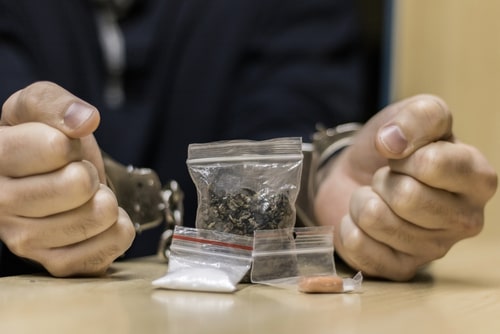How is Intent to Distribute Proven in Texas?
 In May 2024, a Colorado man was arrested in Alpine, TX by Homeland Security agents for allegedly possessing fentanyl with the intent to distribute. The indictment stated that the man allegedly conspired with others to distribute a controlled substance and that the fentanyl distribution allegedly resulted in the death of an Alpine man. The case is being heard in a federal Denver court.
In May 2024, a Colorado man was arrested in Alpine, TX by Homeland Security agents for allegedly possessing fentanyl with the intent to distribute. The indictment stated that the man allegedly conspired with others to distribute a controlled substance and that the fentanyl distribution allegedly resulted in the death of an Alpine man. The case is being heard in a federal Denver court.
Many people are confused about what distinguishes possession of a controlled substance from possession with intent to distribute. Under Section 481.112, the offense of intent to distribute can be charged when the amount of the drug possessed is too large for only personal use. Other indications of intent to deliver include the presence of packaging materials, weapons, scales, large amounts of cash, texts or phone calls from customers, and drug paraphernalia.
If you are charged with intent to distribute drugs, you need to speak to a knowledgeable attorney immediately. A conviction for these charges could land you in prison for a long time. Having an experienced criminal defense lawyer advocating on your behalf can potentially make a significant difference in the outcome of your charges. We will consider every possible defense while ensuring your rights are fully protected.
What are the Penalties for a Conviction of Intent to Distribute?
The Texas Statutes that cover penalties for intent to distribute break the conviction penalties into “groups.”
-
Penalty Group 1 contains high-abuse drugs such as methamphetamines, cocaine, and opium. Depending on the amount of the drug, the charges can range from a second-degree felony to a first-degree felony with penalties that result in fines from $10,000 to $250,000 and from up to 20 years to 99 years in prison.
-
Penalty Group 2 includes high-abuse drugs like hallucinogens and has penalties similar to Penalty Group 1—from a second-degree felony to an enhanced first-degree felony with penalties ranging from $10,000 to $100,000 in fines, and from up to 20 years to 99 years in prison.
-
Penalty Groups 3 and 4 are made up of drugs with a lower incidence of abuse like acid and Xanax. Charges range from a state jail felony to a first-degree felony with penalties including fines from $10,000 to $100,000 and from up to two years to 99 years in prison.
What is the Difference Between Trafficking and Intent to Distribute?
While both drug trafficking and possession with intent to distribute involve selling illegal drugs, drug trafficking is usually charged based on the weight of the drugs recovered. Possession with intent to distribute is determined by how the drugs in question are moved and distributed. A person charged with drug trafficking is also likely to be charged with possession, manufacturing, and distribution. As the quantities of an illegal drug found during a trafficking arrest increase, so do the penalties. Penalties for drug trafficking are usually more severe than penalties for intent to distribute.
Are There Defenses to Intent to Distribute?
To be convicted of intent to distribute, the prosecutor must be able to prove beyond a reasonable doubt that you intended to distribute the drug. This requires credible witnesses and proof that you had a role in making the drug or had specific plans to distribute the drugs. The defenses for intent to distribute are likely to be that you had no intent and that you had no part in making the drugs. Otherwise, your attorney will look for errors made by the police—perhaps they had no valid search warrant or violated your rights during your arrest.
Contact a Tarrant County, TX Criminal Defense Lawyer
Since a key factor in intent to distribute is proving intent, your attorney will show a lack of intent and use any other potential issues to hopefully reduce your charges or possibly have them dismissed. A Tarrant County, TX criminal defense attorney can prepare the best defense possible on your behalf. For a free consultation that includes answers to your questions, contact The Dameron Law Firm at 817-222-0624.

 817-222-0624
817-222-0624







